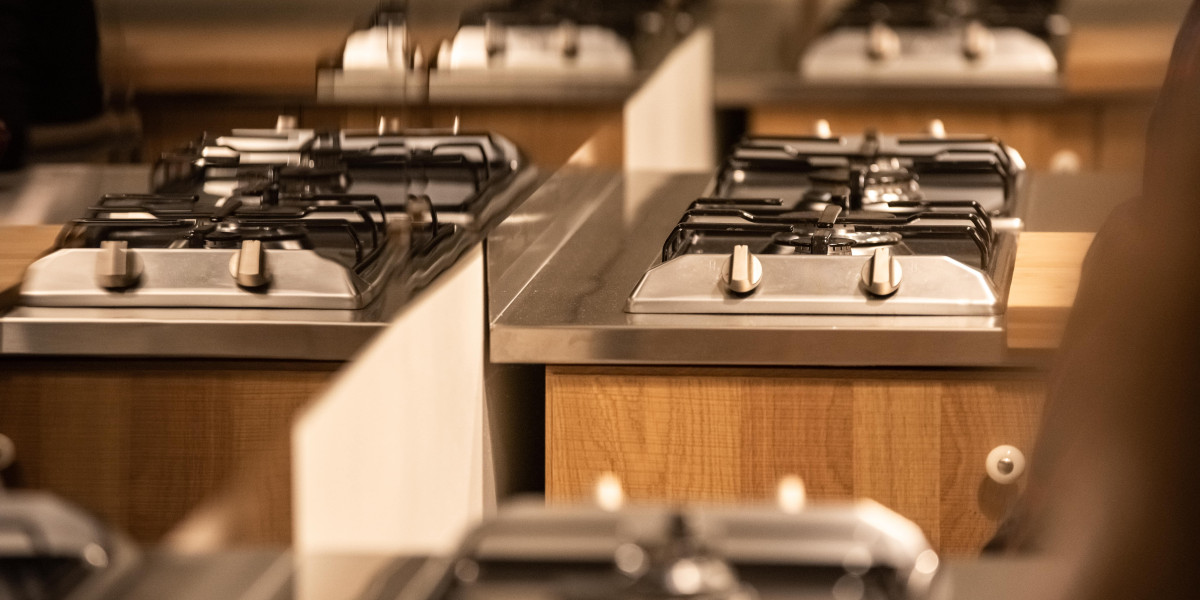The Benefits and Design Considerations of a Kitchen with a Built-In Oven
In contemporary kitchen style, built-in ovens have actually ended up being a prominent function, offering both performance and looks that accommodate contemporary lifestyles. This article digs into the benefits of integrating a built-in oven into the kitchen space and highlights essential style considerations to ensure a cohesive and useful kitchen environment.
Comprehending Built-In Ovens
Built-in ovens are created to be seamlessly integrated into kitchen cabinets, which separates them from standard freestanding ovens. These appliances can be found in numerous setups, including single-wall ovens, double-wall ovens, and even microwave ovens that share the exact same integrated cabinet space.

Common Types of Built-In Ovens
| Type | Description | Ideal Use |
|---|---|---|
| Single Wall Oven | A standard oven with one compartment for baking and roasting. | Little kitchen areas or everyday baking. |
| Double Wall Oven | Two separate oven compartments permitting synchronised cooking. | Large households or frequent bakers. |
| Combination Oven | A microwave and conventional oven in one unit. | Quick meals and flexible cooking choices. |
| Steam Oven | An oven designed specifically for steam cooking. | Health-focused cooking and detailed dishes. |
Benefits of Built-In Ovens
The appeal of built-in ovens can be credited to numerous key advantages, consisting of:
1. Area Efficiency
Built-in ovens are designed to fit within existing cabinetry, releasing up important floor space. This function is particularly beneficial in smaller kitchen areas, where every square foot counts.
2. Streamlined Appearance
The smooth integration of a built-in oven produces a sleek look in the kitchen. Readily available in various surfaces, built-in ovens can match or complement cabinets, using a modern-day and unified style visual.
3. Enhanced Functionality
Built-in ovens typically provide advanced features, such as clever innovation, numerous cooking modes, and even self-cleaning choices. This can enhance cooking experiences and enhance the efficiency of meal preparation.

4. Improved Accessibility
With proper installation of a built-in oven, users can increase availability, avoiding the need to flex over to reach a lower oven compartment. Eye-level cooking appliances allow cooks to monitor their meals quickly and decrease the threat of burns from bending down to look at a baking item.
5. Energy Efficiency
Numerous contemporary built-in ovens make use of innovative cooking technology that can lead to lower energy usage. Functions like convection cooking can lower cooking times while guaranteeing even heating, eventually saving energy.
Design Considerations for a Kitchen with Built-In Ovens
While built-in ovens offer lots of advantages, mindful factor to consider in the design stage is necessary to optimize their benefits and incorporate them efficiently into the kitchen design. Here are some crucial aspects to think about:
1. Cabinet Configuration
When planning for a built-in oven, house owners must thoroughly consider cabinet designs and configurations. Appropriate ventilation is important for appropriate operation. It's important to leave sufficient space for airflow, which can vary depending upon the oven design.
2. Height Preference
The setup height of the oven must be determined based on the primary users. A built-in oven situated at eye level can make it more practical to utilize, specifically for those who frequently cook.
3. Complementary Appliances
In a kitchen setting, built-in ovens often match other built-in appliances such as microwave and warming drawers. Selecting appliances that work well together can even more streamline the kitchen's design.
4. Aesthetic Choices
Selecting finishes and colors that harmonize with the overall kitchen design is crucial. Built-in ovens are available in different choices, consisting of stainless-steel, black, and even custom-made cabinet ends up that can vanish perfectly into the cabinetry.
5. Spending plan Considerations
Built-in ovens can range substantially in price, from budget-friendly alternatives to high-end models loaded with functions. It's important to set a realistic budget that permits the preferred requirements without jeopardizing the total kitchen renovation.
FAQs
1. What is the distinction in between a built-in oven and a freestanding oven?
Built-in ovens are integrated into kitchen cabinetry and provide a smooth look, while freestanding ovens are standalone systems that can be moved quickly.
2. Do built-in ovens need expert setup?
Yes, built-in ovens generally need professional installation due to their integration with cabinets and electrical requirements.
3. Are built-in ovens more costly than traditional ovens?
In general, built-in ovens can be more pricey due to their setup process and advanced features, however there are lots of choices available to match varying budgets.
4. How do I preserve a built-in oven?
Regular cleaning and upkeep, such as utilizing the self-clean function, inspecting seals, and guaranteeing correct ventilation, are vital for maintaining a built-in oven.
5. Can built-in ovens be used in smaller sized kitchens?
Yes, built-in ovens can be advantageous in smaller sized cooking areas since they make the most of space effectiveness and can be installed at eye level for benefit.
Incorporating a built-in oven into a kitchen design is an exceptional option for boosting performance and visual appeals. By considering the style pointers and benefits talked about in this post, property owners can produce an unified kitchen space that accommodates their cooking requirements while looking elegant and stylish. Whether renovating an existing kitchen with built in oven (Visit Web Page) or designing a brand-new one, built-in ovens supply a level of elegance and functionality that aligns perfectly with modern-day cooking practices.


